Behind the Scenes Debate Secrets
Network and campaign insiders gave me details
Some experts are saying tomorrow’s debate could be the most consequential in US presidential history, second only to the Lincoln-Douglas debates. Why? Because there’s a good chance that whoever comes out on top in the debate will win the presidency.
While I’m not sure where this debate will rank in the annals of time, this event might be a difference maker for some fence sitters. And for others, it will be the motivation they need to turn out to vote.
It’s no secret that many voters aren’t thrilled with the two options in front of them. And yes, there are many reasons for that, one of which is that people wonder if two 80ish year old men are mentally sharp enough to run the country.
And one of the best ways to answer that question is to watch them answer questions on live TV. No teleprompters. No pre-prepared notes.
Debate prep is no joke. Candidates and their campaign teams spend weeks getting ready, testing out one liners, and making sure they are ready for any question that might come their way. And of course, planning out the perfect comebacks to zing back at their opponents.
During the Republican primary debates, you saw candidates test out zingers to use against their opponents – everything from Ron Desantis saying that Nikki Haley had an issue with “ballistic podiatry, or shooting herself in the foot,” to Haley repeating the phrase “DeSantis lies.com” 13 times in one debate.
Anticipating what the other candidate is going to say is a major part of the process, and candidates practice by going toe-to-toe against stand-ins who act out what the other people on the stage might say.
This time around, it’s expected that attorney Bob Bauer is playing Trump during Biden’s debate prep, as he did in 2016. Since specifics are always kept on the DL, exactly what’s happening behind closed doors in the hours leading up to the debate is anyone’s guess.
Trump’s aides say he is taking a less formal approach, and instead of cramming, he’s been meeting with senators and advisers to beef up his policy chops. We don’t have any information about mock debates he might be doing, and all indications suggest he probably won’t be doing much debate prep at all.
On the other side, when it comes to the debate moderators, they also spend weeks planning. I spoke with a former CNN insider who worked on debates for the network for more than a decade. They told me that teams of producers, researchers, and network executives lock themselves in a room for hours each day, planning out just what to ask and how to ask it. At CNN, they call it the “Cone of Silence.”
There’s a secret document with each question meticulously laid out, and it's protected with a password that only one person knows. Printed copies must be shredded after each meeting to make sure nobody can go through the trash and see the questions in advance. (Yes, it is taken that seriously).
You might remember the controversy after it was discovered (through wikileaks) that Donna Brazile, then a CNN contributor and later the interim chair of the Democratic National Committee (DNC), shared debate questions with Hillary Clinton’s campaign. When Brazile’s emails were leaked, she was forced to resign from CNN.
Network debate prep teams plot out a series of questions and follow up questions, timing it out so it’s as fair as possible for each candidate (meaning each person should get the same number of questions and follow up questions).
In deciding what topics to cover in the short time they have, producers and moderators take into consideration the top issues voters care about most. Of course there isn’t time to hit every single topic in the news, but you can be sure if a majority of voters care about it, moderators plan to ask about it.
And debate moderators also need to know their stuff. Like the candidates, they too participate in mock debates, with stand-ins who are well versed in each candidate’s positions. During the debate, you’ll see the moderators with cards that have the questions, always numbered, plotted out exactly how the producers have planned for the debate to go.
But anything can happen on live TV. My source told me extra questions are written just in case the candidates don’t use up all of their time.
In 2015, Anderson Cooper moderated a CNN debate and got props for pushing back on a response from Bernie Sanders, after Sanders mentioned Denmark as a model for how democratic socialism can work. Cooper clearly anticipated what Sanders might say, because he was ready with the population of Denmark, so he could ask Sanders a follow up question.
The goal is always to get those real moments from candidates, so voters can make informed decisions. Asking questions in certain ways can help disarm the people on the stage, so they get off their prepared talking points.
Last week I reached out to Steve Schmidt to ask him what he thinks we’ll see tomorrow.
Steve is a veteran political strategist who worked on a number of campaigns for people like George W Bush, John McCain, and Arnold Schwarzenegger. I asked him about a rumor y’all have been messaging me about, which is: “will both candidates show up?”
Schmidt said that both candidates are all in, and that he would bet his arms and legs that they will both be there.
I also asked him about why it’s so important for the candidates to perform well – haven’t most Americans already made up their minds? He said, “There's never been an election where the weaker candidate in perception has defeated the stronger candidate. The alpha always defeats the beta. Always.”
I was specifically interested in what he might say to the candidates if he were coaching them, as he has coached candidates in the past.
Me: “If you were in a room with Biden preparing him for this debate, what would you be saying?”
Schmidt: “He's going to have to measure up. He measured up at the State of the Union. But he has to confront, as the commander in chief, as the President of the United States, the man whom he defeated, and who then incited a mob to storm the Capitol. He has to speak to that directly.
“And this is the proxy and the closest the American people will ever get to imagining how he does in a room with Xi Jingping or with Vladimir Putin. This is it. And so he must perform at a very high level or not.”
Me: “And what if he doesn’t?”
Schmidt: “If he doesn’t, then there's going to be a meltdown in the Democratic Party, the likes of which I can't even articulate with 68 days to go. I mean, it will be the explosion of all of the pent up and repressed truths and worries about his capabilities that have been building for a very long time, but remain generally unspoken.”
Steve says that these will be the most important debates in his lifetime, and certainly among the most important in US history, and that if the election were today, it looks probable that Trump will win. He says that’s because Trump has managed to make the conversation about Biden – during a week when Trump was convicted of 34 felonies, people were talking about Biden’s fitness to serve.
Schmidt: “If Biden wants to win this debate, he has got to come out very tough. Very, very tough. He’s got to walk out, look Trump in the eye, and say, ‘Donald, you were the worst president in American history. You betrayed your oath. You debased the office. You disgraced yourself. You’re a laughing stock with world leaders.’ Biden needs to psychologically unravel Trump.”
If he were advising Team Trump, Schmidt would tell him that he would need to come out on stage and throw Biden completely off his practiced debate prep. He would need to provoke Biden, catch him off guard, and show everyone that Biden is weak and he is strong.
We’ll see tomorrow if either of them has read this and taken Steve’s advice.
So what are we likely to hear about tomorrow? According to my former CNN source, abortion, Gaza, the economy, and the age of both candidates are likely to be at the top of lists of questions. All topics both Trump and Biden are certainly anticipating questions on.
There are new rules for this debate (no audience, and mics will be muted when it’s not someone's turn to speak), and that will make this a very different experience for Donald Trump, who often interrupts and feeds off the crowd.
And finally, the former CNN insider tells me they have a good sense on how the debate will end: a final wildcard question. It won’t be on the issues, it will be something personal. Remember when Barack Obama was asked to say something nice about Hillary Clinton in their final debate together? He responded she was “likable enough.” Expect the unexpected at the end.
I asked Steve, “What do you hope the American public watching at home will keep in mind during the debate?
He said, “We are on the edge of a truly momentous anniversary, which is the 250th of our independence. And every 50 year increment of our independence, we arrive at it in a moment of crisis, in a real test of faith about democracy, and we're going to pass that test again. But we have to realize that it's a test and that that test is at hand.”
I’m curious: would you like me to do some real time debate updates here on Substack? Tell me in the comments here.
Steve’s newsletter, The Warning with Steve Schmidt, celebrated its two year anniversary this week! Subscribe here.
And coming this Friday: tickets to my 14-city book tour will finally be on sale!
I don’t have investors or work for a large company — my work is supported by people like you. If you value the work of independents like me, subscribing is a great way to show you care.



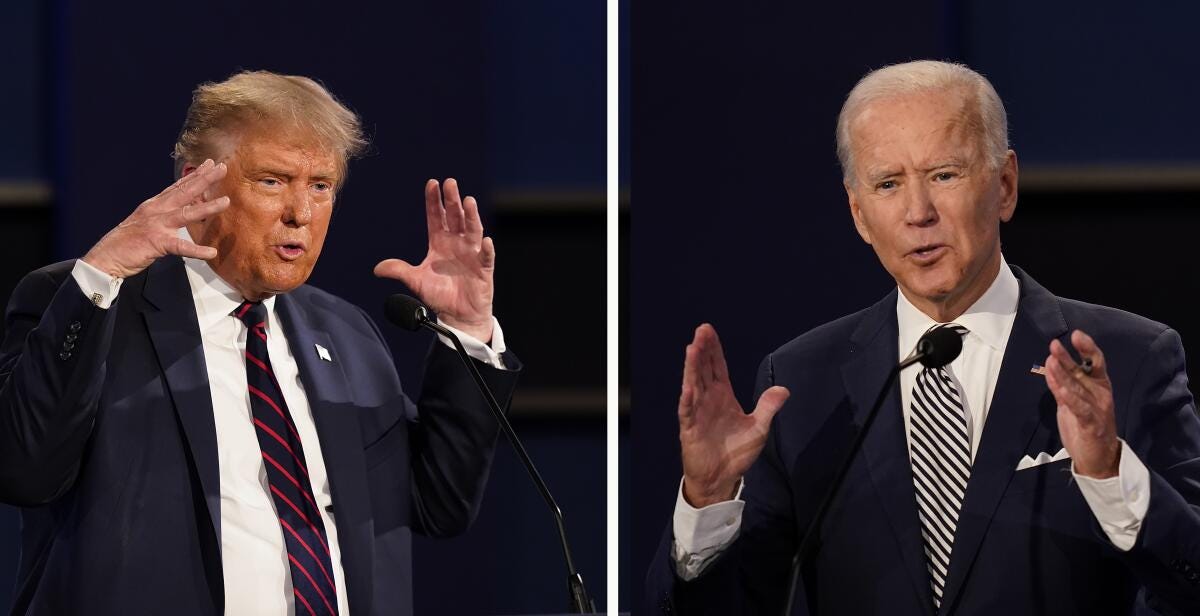
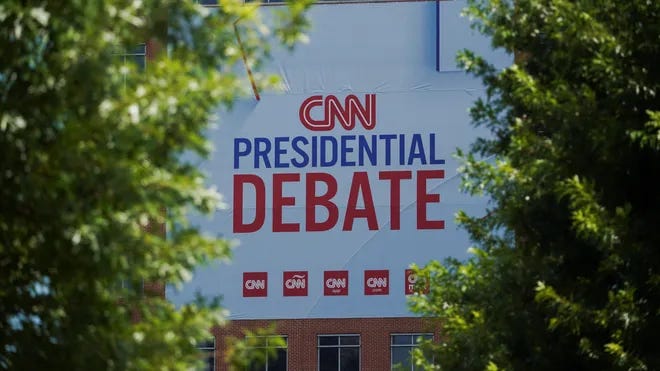
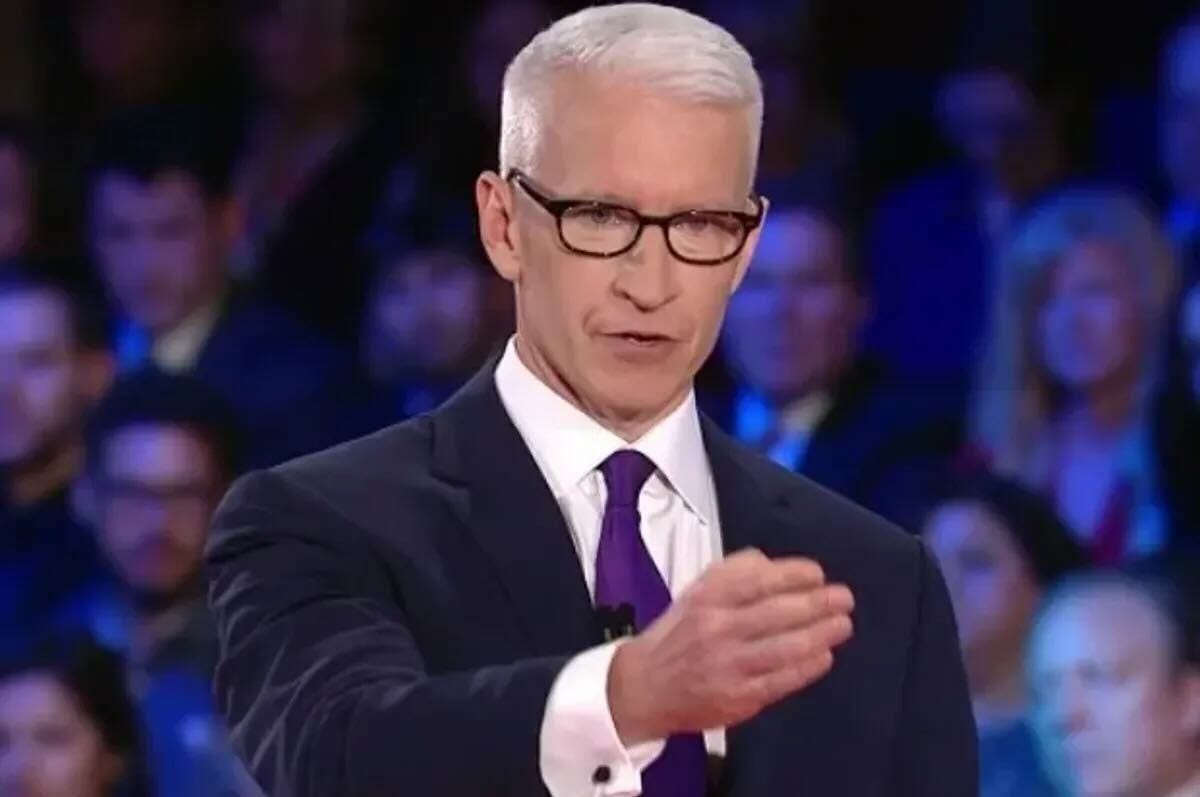
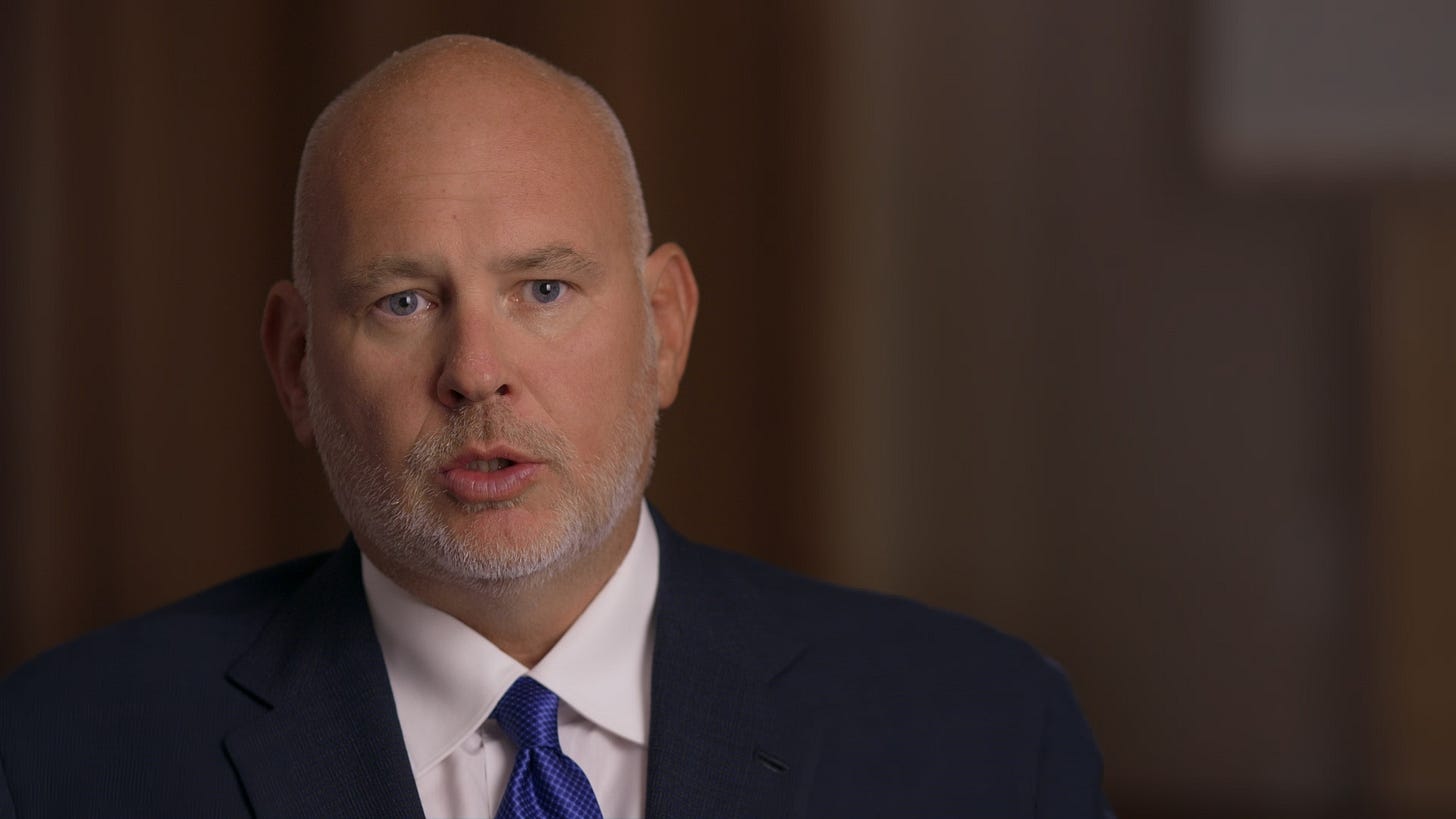
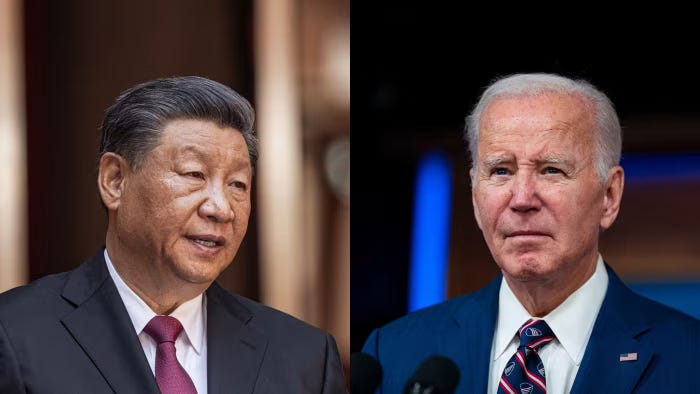
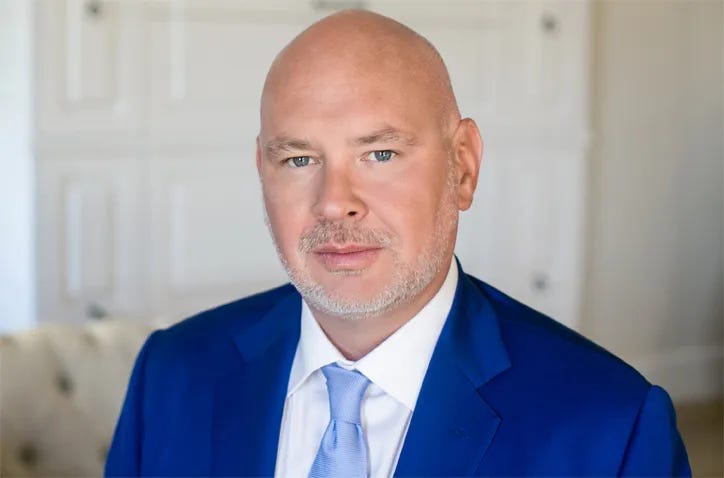

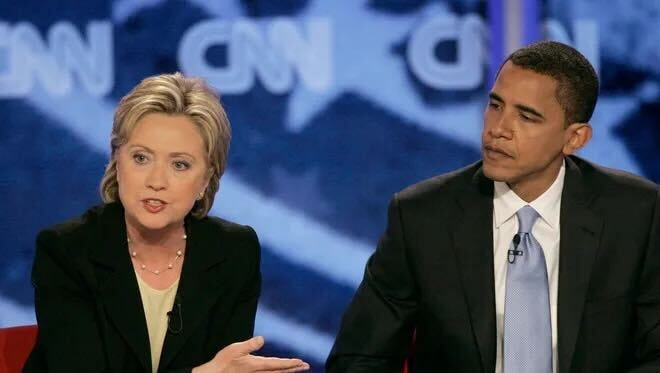
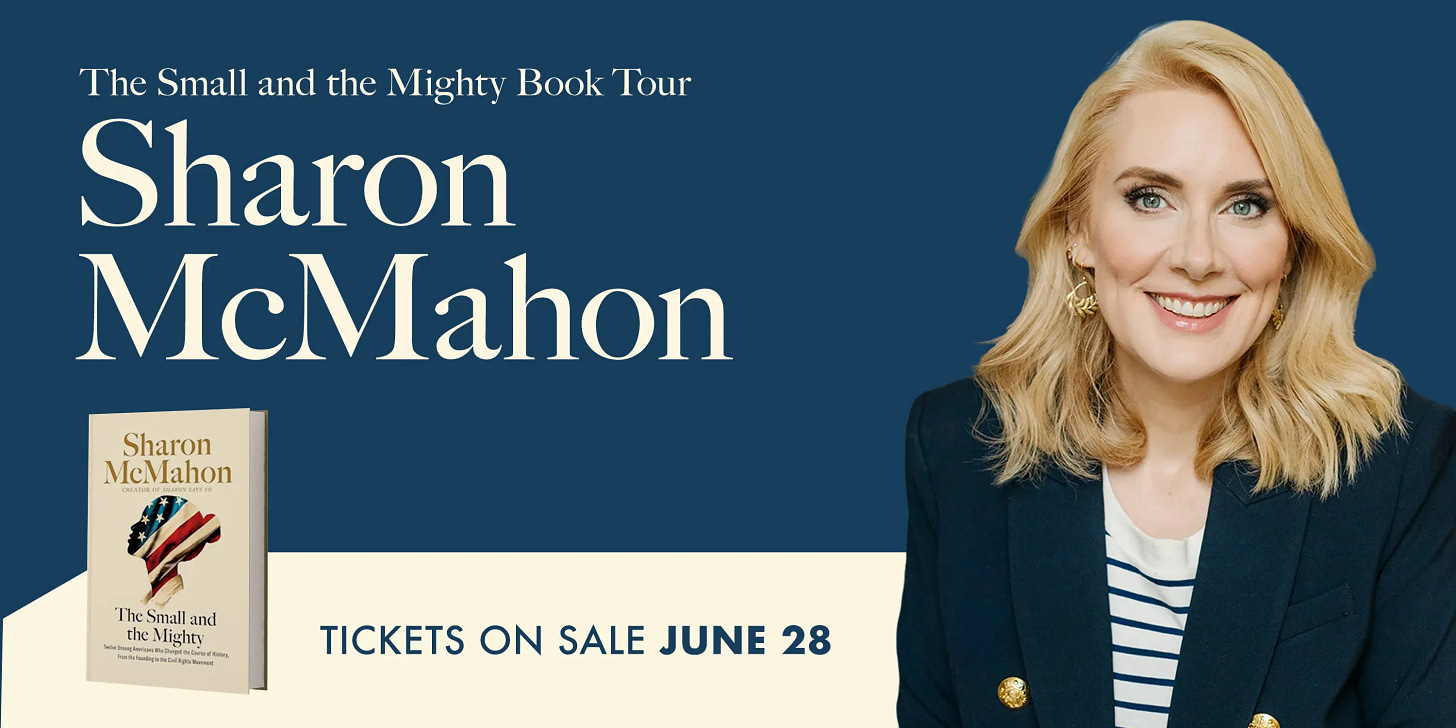
Yes please to real time debate updates on substack!!
Ok fine, you’ve convinced me to watch the debate 🙄 Schmidt’s evaluation makes a lot of sense. I am most interested in seeing how Trump does with a mic that forces him not to ramble.